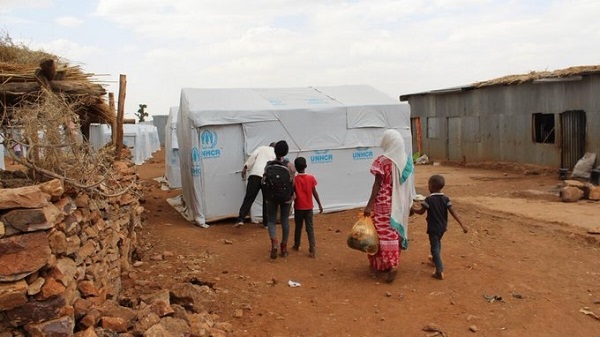
United Nations, (Asian independent) Talk of a cessation of hostilities in Ethiopia’s embattled Tigray region is no green light for international relief operations to resume, UN humanitarians said.
Tens of thousands of people have reportedly been displaced in parts of Tigray, Afar and Amhara since hostilities resumed three weeks ago. Humanitarian convoys into Tigray and UN Humanitarian Air Service flights between Addis Ababa and Tigray’s capital of Mekelle remain suspended, said the UN Office for the Coordination of Humanitarian Affairs (OCHA) on Tuesday.
The UN office added the suspensions block the flow of material aid and hamper the rotation of humanitarian workers and the transfer of cash for humanitarian operations, Xinhua news agency reported.
“We and our partners continue the distribution of available aid in Tigray, including cold chain equipment — freezers and refrigerators — and medical supplies to health centres and hospitals,” OCHA said.
“Partners have also mobilised shelter supplies for 23,000 newly displaced households in Shire and Mekelle towns.”
In the Amhara region, there was an interagency needs assessment for Mersa town in the North Wollo Zone, where nearly 12,000 newly displaced people, mainly women and children, are taking refuge in five schools. Partners will start distributing food and non-food items and have mobilised a mobile health and nutrition team for the town, OCHA added.
On Sunday, UN Secretary-General Antonio Guterres welcomed the regional Tigray government’s readiness for an immediate cessation of hostilities and to peacefully resolve the conflict. He was encouraged by the stated willingness of the regional government to participate in a peace process under the auspices of the African Union.
OCHA said the drought is getting worse in eastern and southern Ethiopia, and more than 16 million people need humanitarian assistance through the end of this year. About half that number received food, nutrition supplements, agricultural support, water, sanitation and hygiene services and other assistance.







